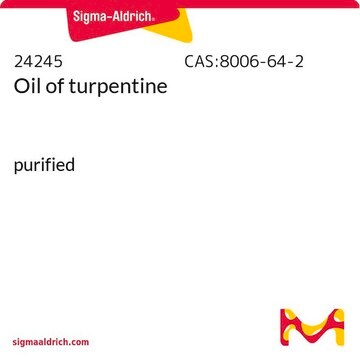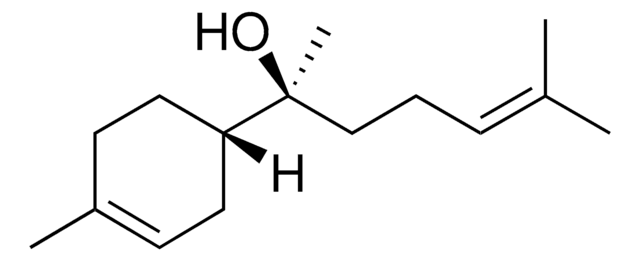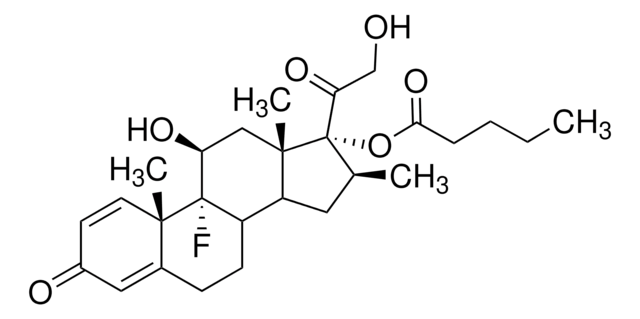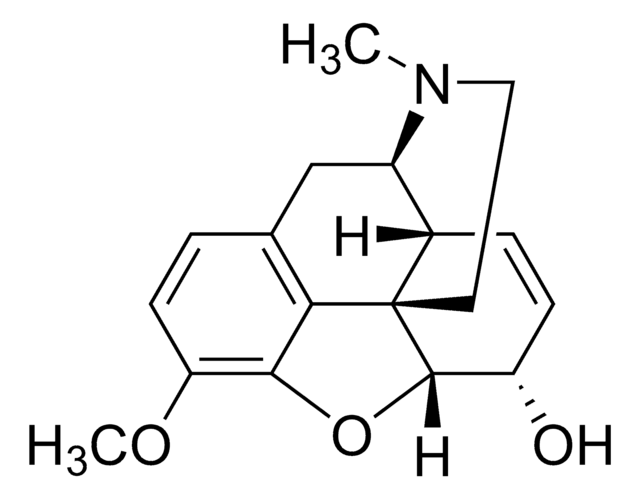All Photos(1)
About This Item
CAS Number:
FEMA Number:
2116
EC Number:
Council of Europe no.:
298n
MDL number:
UNSPSC Code:
12164502
NACRES:
NA.21
Recommended Products
grade
Kosher
Quality Level
refractive index
n20/D 1.5690 (lit.)
density
1.161 g/mL at 25 °C (lit.)
application(s)
flavors and fragrances
Documentation
see Safety & Documentation for available documents
food allergen
no known allergens
Organoleptic
balsamic; woody; sweet; vanilla
Looking for similar products? Visit Product Comparison Guide
Related Categories
Biochem/physiol Actions
Taste at 10 ppm
Disclaimer
For R&D or non-EU Food use. Not for retail sale.
Signal Word
Warning
Hazard Statements
Hazard Classifications
Skin Irrit. 2
Storage Class Code
10 - Combustible liquids
WGK
WGK 2
Flash Point(F)
Not applicable
Flash Point(C)
Not applicable
Personal Protective Equipment
dust mask type N95 (US), Eyeshields, Gloves
Choose from one of the most recent versions:
Already Own This Product?
Find documentation for the products that you have recently purchased in the Document Library.
Elise M Herro et al.
Dermatitis : contact, atopic, occupational, drug, 23(1), 17-21 (2012-06-02)
Although allergic contact dermatitis of the eyelids is a common condition, limited information is available regarding the selection of patch-testing chemicals for proper evaluation. The purpose of this analysis was to evaluate the relevance of allergens responsible for allergic eyelid
Stephanie Tan et al.
The Australasian journal of dermatology, 52(3), 222-223 (2011-08-13)
Two patients presented with cheilitis and perioral dermatitis. Patch testing revealed positive reactions to both Myroxylon pereirae (MP; formerly known as Balsam of Peru) and Lucas Papaw Ointment (LPO; Lucas Papaw Remedies, Bisbane, Qld, Australia). MP was not listed as
Patch testing: the whole in addition to the sum of its parts is greatest.
Rajiv I Nijhawan et al.
Dermatitis : contact, atopic, occupational, drug, 20(1), 58-59 (2009-03-27)
Raenell Thomas
Ostomy/wound management, 54(11), 56-58 (2008-11-28)
Pressure ulcers are localized skin injuries secondary to unrelieved pressure or friction. Patients with immobility issues are at increased risk for developing pressure ulcers. In 2004, stricter federal regulations for prevention and treatment of pressure ulcers in institutional settings--eg, long-term
Selected antimicrobial essential oils eradicate Pseudomonas spp. and Staphylococcus aureus biofilms.
Nicole L Kavanaugh et al.
Applied and environmental microbiology, 78(11), 4057-4061 (2012-04-03)
Biofilms are difficult to eliminate with standard antimicrobial treatments due to their high antibiotic resistance relative to free-living cells. Here, we show that selected antimicrobial essential oils can eradicate bacteria within biofilms with higher efficiency than certain important antibiotics, making
Our team of scientists has experience in all areas of research including Life Science, Material Science, Chemical Synthesis, Chromatography, Analytical and many others.
Contact Technical Service









